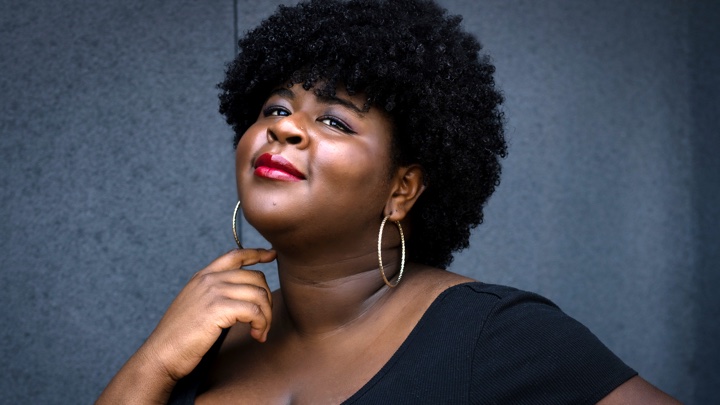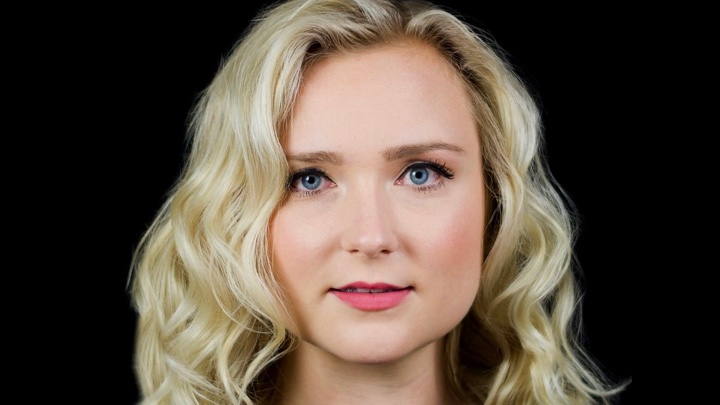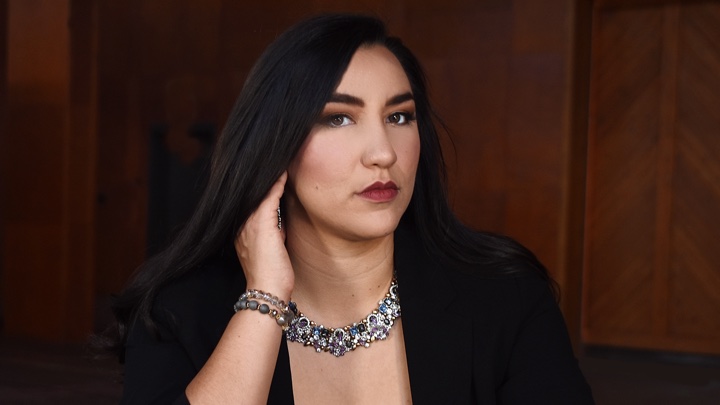
Mezzo-soprano Natalie Lewis, “a blue-chip talent, of whom great things should legitimately be expected.”
Before last weekend’s Met Grand Finals (now officially known as the Eric and Dominique Laffont Competition), I had attended this annual event in person only once. That was in 2001, and even 22 years later, it remains a happy memory: a dear friend, the soprano Melissa Citro, won Second Place, and Lawrence Brownlee, to the roaring approval of the crowd, took First.
But I’m no stranger to this kind of event. Every year, I go to the Academy of Vocal Arts’ Giargiari Bel Canto Competition here in Philadelphia (and I’ve written about several of them for Parterre). Decades before, when I lived in Los Angeles, I was a frequent audience member of the regional Met Semi-Finals and various similar competitions, which gave me my first glimpses of many singers who established themselves later, including the as-yet-unknown Deborah Voigt and Leona Mitchell. (Yes, I am that old.)
At all of these vocal contests, including this one, I find myself fascinated and perplexed by the same question: What exactly are the judges looking for?
You’d think that’s easy and obvious, but really, it’s not. For example: do they want the best voices? Even if there are weaknesses and flaws in their current techniques? (Since I’m neither a singer nor a vocal pedagogue, I’m not sure how I myself would be able to determine that.) Are they looking for the most musically sophisticated and finished artists? The strongest actors?
In the case of Laffont, is the goal to find artists with enough “oomph” to fill the Met? In their deliberations, do they favor rarer voice types? Would a still-unfinished potential Brünnhilde or a coloratura bass get picked over a more polished lyric soprano? In virtually all these competitions, the format is the same: each singer does two arias. What if one is a lot better than the other?
And finally–given that there are multiple judges in most cases (six at Laffont this year)… how do they reach anything like a united decision?
One thing I noted at this year’s Laffont Competition that now there are six winners (among 10 semi-finalists), who appear to place equally. There’s no more first, second, third, etc. Generally speaking, I approve. It’s probably more nuanced and fairer than the old way, though it does deny the audience that moment of frisson that I recall so well from Brownlee’s win.
Anyway, I offer all of this as a perspective on my thinking as I watched and listened… and discovered that, indeed, the various winners seemed to embody many of the different issues I noted above.
With that preamble, here’s my takeaway on the six who took top honors:





Natalie Lewis (mezzo-soprano: “Iris, Hence Away” in the first half; “Acerba volutta” in the second). Here was all the tonal density and richness that I would want in Dalila. Lewis also had what for me is the rarest and most precious of qualities in a singer: an individual imprint of sound and personality that distinguishes her as an artist: a “star sound,” if you will. I also love that she took a risk with the Semele aria: I imagine 19th Century opera, rather than Handel, will be her central repertoire, but she dispatched it with a sense of style and executed the ornaments skilfully. But it was in the Adriana where she really came into her own–gorgeous tone, especially in the low-lying phrases. Initially, Lewis struggled a bit to project fully into the space, and words weren’t always ideally clear. But this is a blue-chip talent, of whom great things should legitimately be expected.
As for the others–tenors Yuntang Han and Sahel Salam, and baritones Eleomar Cuello and David Wolfe–all of them show promise, and I expect will have successful careers. Cuello, who really ripped into “Cruda, funesta, smania,”, and shows both glamor and temperament, would have made my top list; frankly, Wohlgemuth would not have. But of course, time will tell.
I should also give a shout-out to Latonia Moore. As the event host, she was chatty, charming, and adorably down to earth. Later, singing Tatiana’s Letter Scene to entertain the audience as the deliberations went on (a good idea!), she was occasionally tested by the higher and more exposed writing and a bit too grand for the character, but she was often ravishing and very emotionally connected to this fabulous scene. Michele Gamba conducted; he and the Met Orchestra in fine form did very well across an enormous range of styles.


